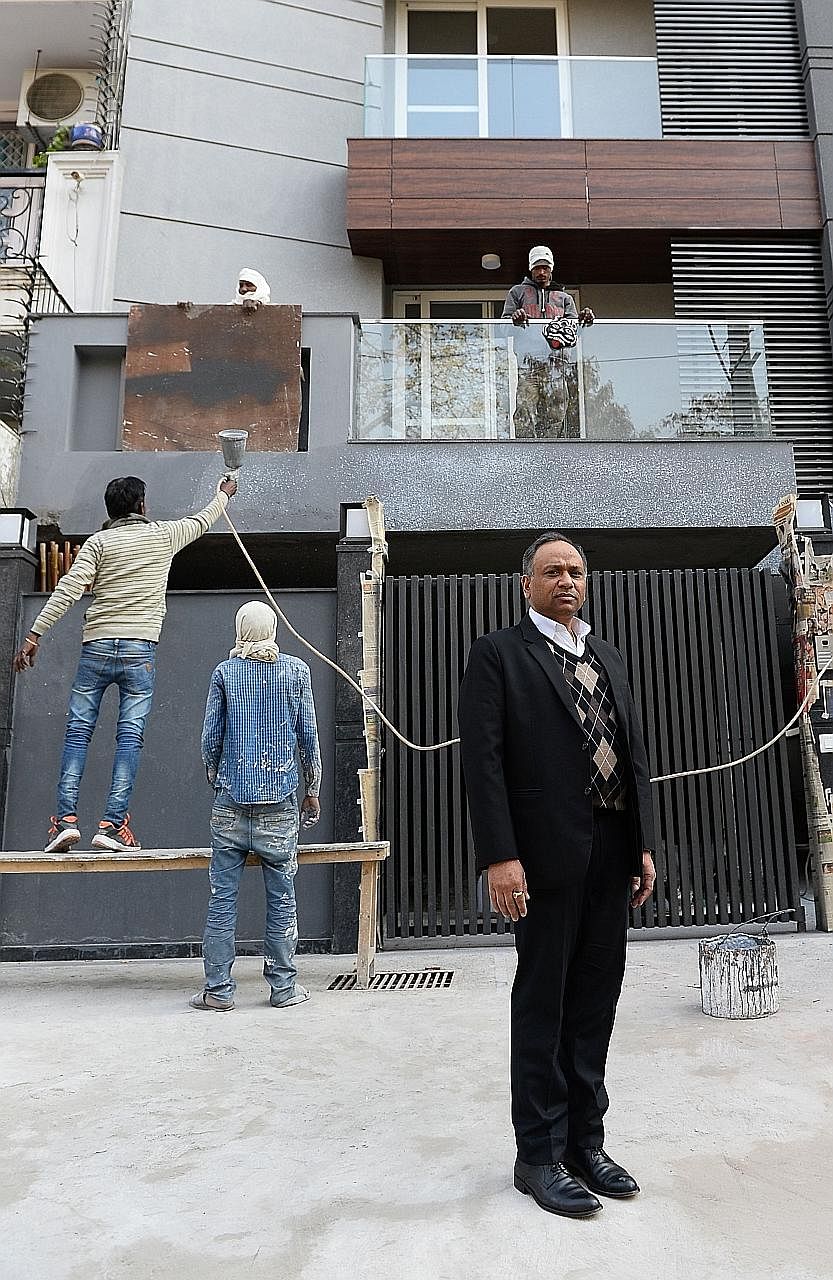NEW DELHI • Mansions owned by maids, gardeners and drivers until now have aroused little suspicion in India, where the wealthy have long hidden fortunes in the names of lowly-paid staff to avoid paying tax.
But as the government broadens its crackdown on corruption, a new law promises to end the practice and hundreds of suspicious bank accounts are under investigation.
"There's been an overnight change in the system," said real estate lawyer Naresh Gupta, describing the new rules as "very draconian", adding: "Investigators can question anyone and ask any government department for information about suspects."
The law banning such "benami" transactions, making it illegal for assets to be hidden in another's name, came into effect last November as part of a twin strike by the government to flush out undeclared "black money" hoarded by tax evaders.
It followed a shock decision by Prime Minister Narendra Modi to withdraw high-value bank notes from circulation, compelling millions of people to join the formal banking sector for the first time. Previously, around 90 per cent of daily transactions across the country were in cash.
Holding real estate in someone else's name has been a particularly popular avenue for those seeking to legitimise black money and dodge their tax dues.

Those caught out could have their wealth seized, face a seven-year jail term and pay hefty fines equivalent to 25 per cent of the asset's value.
Government officials say 235 suspicious accounts were under investigation for alleged benami activity in mid-February, with more than half frozen, and properties seized.
Mr Modi, who was elected in 2014 on a pledge to wipe out graft and kick-start the economy, has promised more scalps.
Those declaring suspiciously large sums were red flagged for audit by the tax department, which often uncovered complex and implausible webs of benami holdings.
In one case, the department said 33 million rupees (S$707,000) had been hidden in the name of a woman who was not even aware the account existed.
In another instance, one businessman bought a sprawling mansion in a swish Delhi postcode and registered the deed under a company whose chief executive also happened to be his maid.
And a young couple purchased a US$1.2 million (S$1.7 million) house under someone else's name to avoid explaining how two civil servants could afford such a place, said a person close to the transactions.
There is no hard data on what percentage of transactions in India are benami and could fall foul of this law. But experts agree the practice is rife and long overdue for scrutiny.
"After the note ban, this was the natural next step," said Mumbai- based tax adviser Uday Ved, in reference to the Modi government's anti-benami blitz.
"Now the law is in effect they will go after cash, real estate, gold, everything."
AGENCE FRANCE-PRESSE
